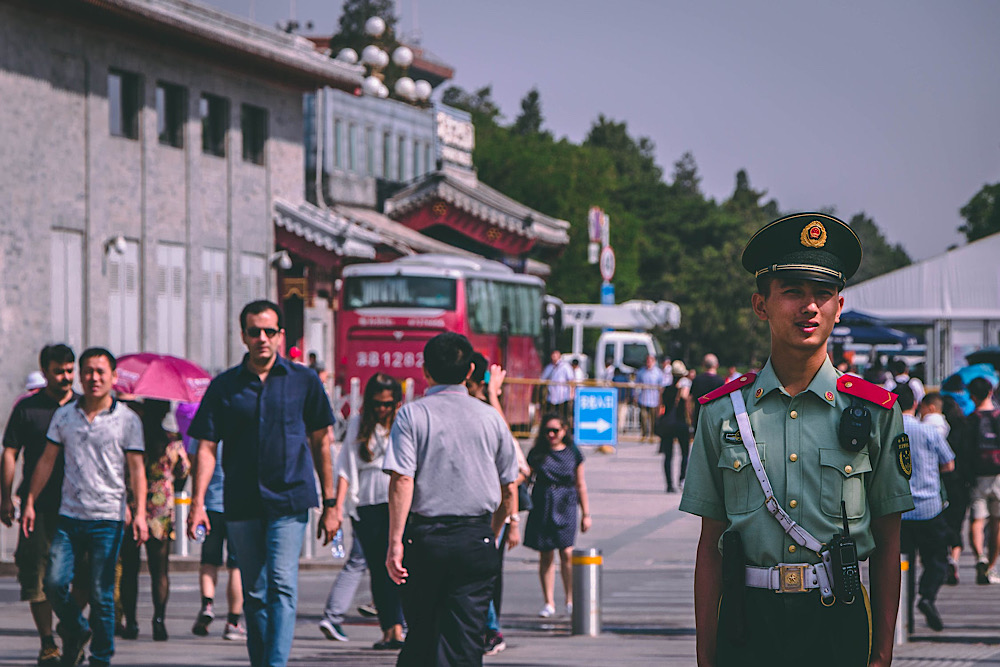Beijing using facial recognition to track down North Korean refugees
Monitoring systems and artificial intelligence have increased the risks and costs for those trying to flee the Kim regime. If a face does not match a profile, the police can intervene. COVID-19 and increased surveillance have cut down the numbers of fugitives. Brokers’ fees have increased to US$ 10,000-15,000.
Beijing (AsiaNews) – For North Korean refugees in China, Beijing’s facial recognition technology increases the risk of capture, while driving up the price charged by brokers who organise cross-border escape.
Most North Korean would-be escapees choose to cross the border with China, sources told Radio Free Asia; however, China’s facial recognition systems – with cameras installed on street corners, in public places and at train stations – can track vehicles and people on the move.
What is more, since the face of nearly every Chinese resident has been recorded in a government database, North Koreans can be easily singled out since they are not in the latter.
When a face does not match a profile, police can check out that person to determine why they are in the database, notes Seo Jae-pyoung, head of the Association of North Korean Defectors, a South Korea-based support group.
Although it is difficult to know for sure whether the software leads to the capture of North Korean refugees and exiles in China, what is sure is that its widespread use has increased the cost and risks of escape.
Seo notes that last March, surveillance software seems to have been a key factor in the capture of a group of five or six refugees and a local broker who helped them move in Chinese territory, most probably captured by Chinese police near Dalian, a city in north-eastern China.
“It seems that those North Korean escapees were already tracked down,” Seo explained. “It is highly likely that they were caught because they were unaware of the dangers of facial recognition technology and tracking.”
The activist notes that China has massively boosted the use of artificial intelligence-based facial recognition technology and this has increased the risks facing North Koreans who want to flee the Kim regime.
China is usually the first stop on a journey that takes escapees to Southeast Asia before reaching South Korea, the final destination of scores of desperate attempts to escape.
According to experts, this could be one of the reasons why the number of North Koreans who manage to reach South Korea is down.
Between 2001 and 2019, more than a thousand North Koreans arrived in South Korea per year, with a peak of 2,914 in 2009.
More recently, the number dropped to 229 in 2020 and then to double digits in 2021 and 2022, according to data from South Korea's Unification Ministry.
Of course, the drop was largely affected by the strict travel restrictions imposed in February-March 2020 because of the COVID-19 pandemic, when Beijing and Pyongyang sealed their 1,350-kilometre border.
Facial recognition technology is also an important because, according to experts, it discourages potential defectors from escaping since capture and repatriation mean detention in concentration camps under very harsh conditions, not to mention death.
Given its advanced technology, China appears to be even able to monitor escapees at North Korea’s request, noted Choo Jaewoo, a professor at the department of Chinese language and literature at Seoul’s Kyung Hee University.
“If North Korea requests tracking of a specific person and China accepts it, the risk of being caught by facial recognition technology could be much greater," Choo explained.
The software has also increased risk for brokers, prompting them to raise prices. Before facial recognition technology was so widespread, crossing China with the help of a smuggler could cost about ,000 per refugee, while now it can cost ,000 to ,000 or more.
Before, fugitives could at least see the police arrive and try to avoid them, or hide when they heard sirens. “Now we are exposed to more invisible and unaware fears,” said Ji Chul-ho, head of the Emergency Rescue team at Now Action & Unity for Human rights, a South Korean organisation that helps North Korean escapees. That “is a serious problem.”
12/02/2016 15:14
25/06/2021 13:56
24/01/2019 15:47







.png)










